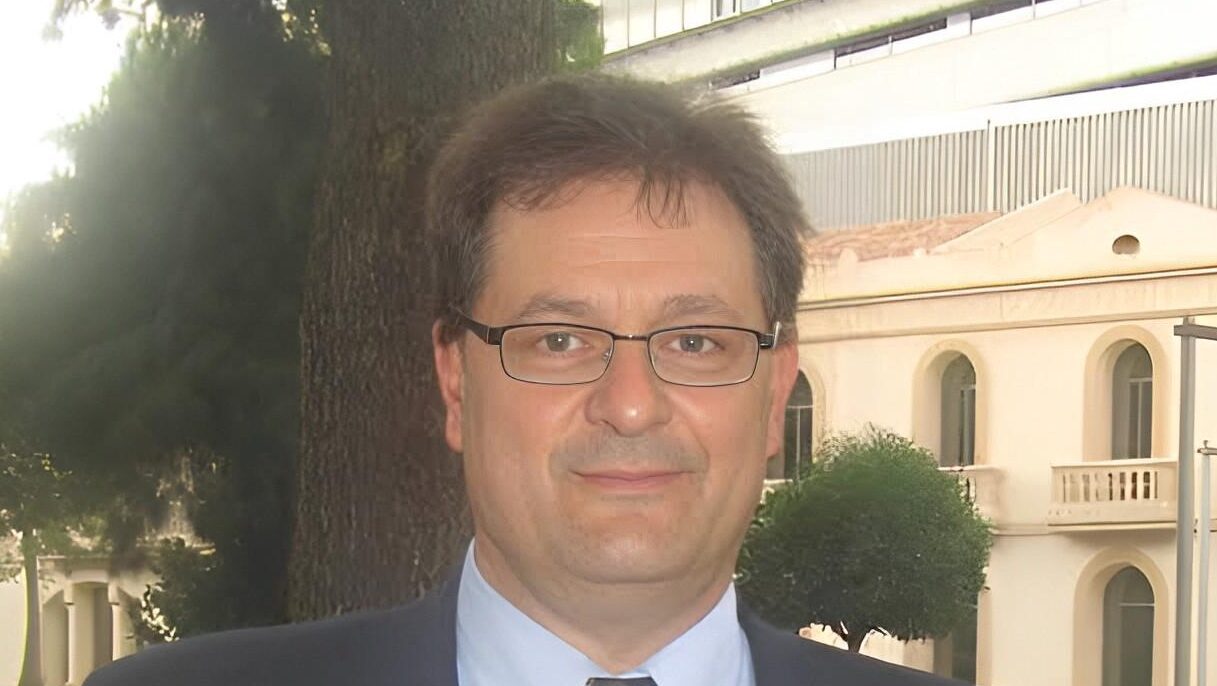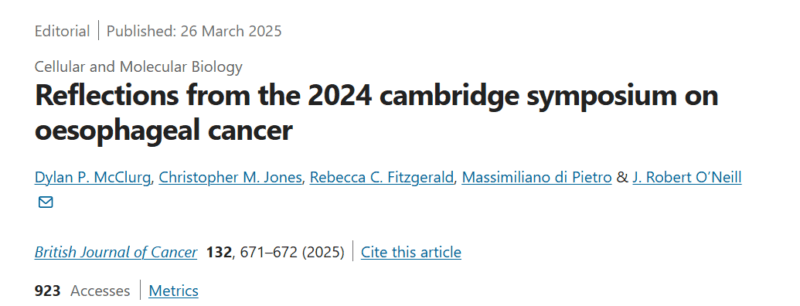
Miguel Bronchud: New onset of swallowing difficulties should be taken seriously and investigated properly
Miguel Bronchud, Co-Founder of Regenerative Medicine Solutions, shared a post on LinkedIn:
“New onset of progressive ‘difficulties in swallowing’ should always be taken seriously and properly investigated – as suggested by an interesting editorial by the Cambridge Oesophagogastric Centre (Cambridge University Hospitals NHS) in The British Journal of Cancer.
Reflections from the 2024 cambridge symposium on oesophageal cancer
Authors: Dylan P. McClurg, J. Robert O’Neill, et al.

‘2024 Cambridge Symposium on Oesophageal Cancer’ was primarily dedicated to cancers of two different histological types: oesophageal adenocarcinoma (OAC) and oesophageal squamous cell carcinoma (OSCC).
It is estimated that 3–6% of individuals with gastro-oesophageal reflux-predominant symptoms – typically “heartburn”, common in some 20% of adults in most developed countries- could have a precursor lesion to oesophageal adenocarcinoma known as “Barrett’s oesophagus”.
However, only around 20% of patients with Barrett’s oesophagus are diagnosed. Therefore, most cases of oesophageal adenocarcinoma are diagnosed de novo, without the opportunity to prevent progression.
Unfortunately, for reasons largely unknown, incidence of oesophageal adenocarcinoma is six times higher than it was in the 1990s.
Oesophageal adenocarcinoma frequently has a dismal prognosis due to late presentation, with an overall 5-year survival of less than 20%, despite advances in neoadjuvant therapy for loco regional disease (traditionally, chemotherapy & radiation) and surgery.
Clinical guidelines recommend urgent referral for an endoscopy in patients with warning symptoms, such as dysphagia (“difficulty in swallowing” solids and liquids), and weight loss, and routine referral for an endoscopy in those with symptoms of gastro-oesophageal reflux that persist despite recommended lifestyle and pharmacological management strategies, and those with multiple additional risk factors for the disease.
Patients with early disease or “intramucosal stage I cancers” have a survival of more than 90% and can be treated endoscopically, thus mitigating the risks of and side-effects from systemic therapy and an oesophagectomy.
Treatment of dysplastic Barrett’s oesophagus (when diagnosed) prevents progression to adenocarcinoma; however, the optimal diagnostic strategy for Barrett’s oesophagus is unclear. The Cytosponge-trefoil factor 3 (TFF3) is a non-endoscopic test for Barrett’s oesophagus.
In a 2020 The Lancet paper presented the results of treatment of dysplastic Barrett’s oesophagus with ‘Cytosponge-trefoil factor 3 (TFF3)’ : a non-endoscopic test for Barrett’s oesophagus (with promising early results).”
Authors: Rebecca C Fitzgerald,et al.

More posts featuring Miguel Bronchud.
-
Challenging the Status Quo in Colorectal Cancer 2024
December 6-8, 2024
-
ESMO 2024 Congress
September 13-17, 2024
-
ASCO Annual Meeting
May 30 - June 4, 2024
-
Yvonne Award 2024
May 31, 2024
-
OncoThon 2024, Online
Feb. 15, 2024
-
Global Summit on War & Cancer 2023, Online
Dec. 14-16, 2023
